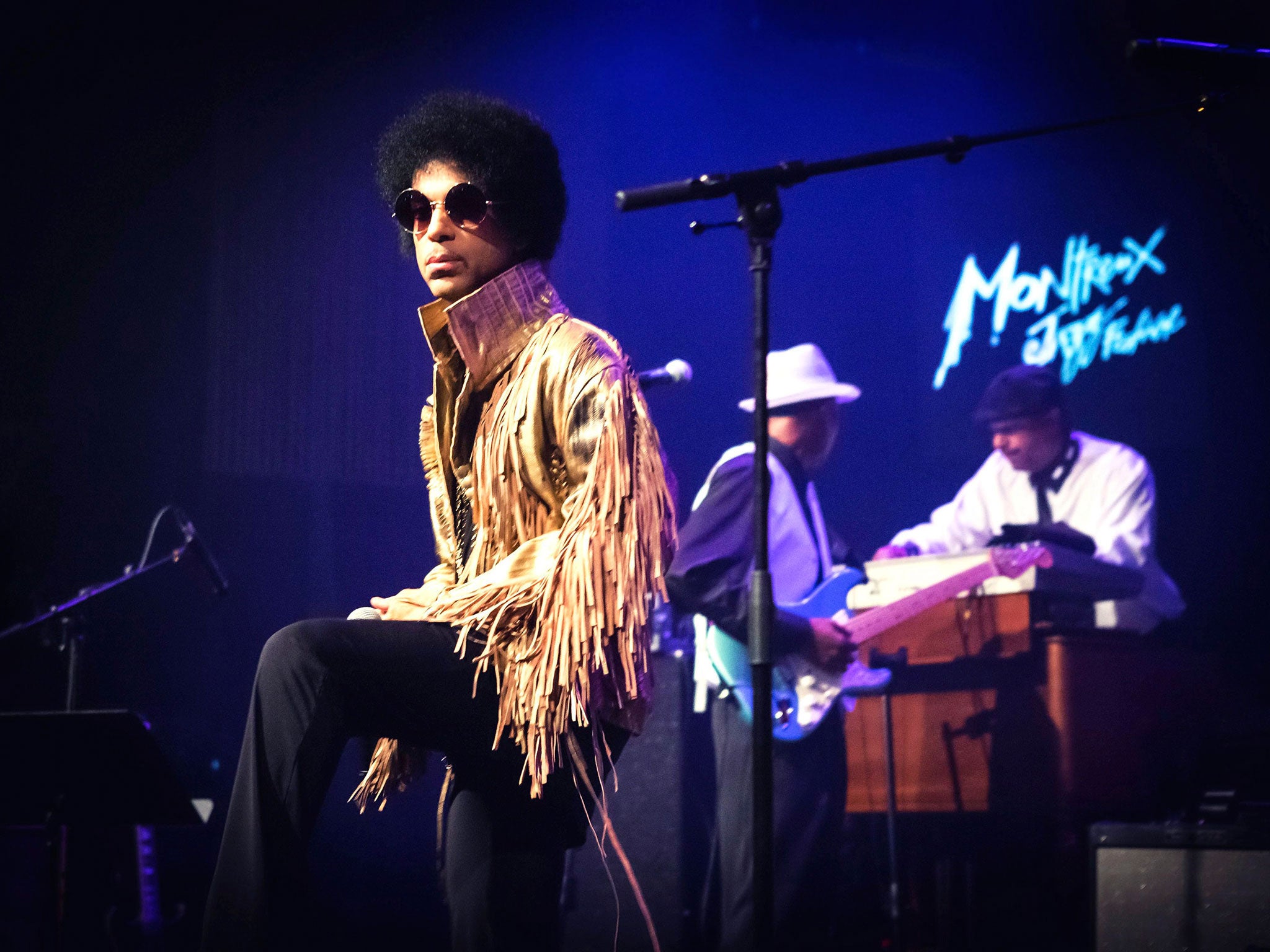Prince’s death is painfully personal – he was such an inspiration for musicians like me
Prince – an artist born slippy of gender and genre – was never ready to turn his other cheek to the blood-sucking leeches of the music business

Your support helps us to tell the story
From reproductive rights to climate change to Big Tech, The Independent is on the ground when the story is developing. Whether it's investigating the financials of Elon Musk's pro-Trump PAC or producing our latest documentary, 'The A Word', which shines a light on the American women fighting for reproductive rights, we know how important it is to parse out the facts from the messaging.
At such a critical moment in US history, we need reporters on the ground. Your donation allows us to keep sending journalists to speak to both sides of the story.
The Independent is trusted by Americans across the entire political spectrum. And unlike many other quality news outlets, we choose not to lock Americans out of our reporting and analysis with paywalls. We believe quality journalism should be available to everyone, paid for by those who can afford it.
Your support makes all the difference.And so the cull of musicians that meant so much to so many continues, as news of Prince Rogers Nelson’s death at the age of 57 emerges. I mourned David Bowie, but I physically moaned when I heard of Prince’s death.
I’ve been caught up in his perfect sound since I first discovered him in 1979, in the wake of the indelible impact he made on pop culture in 1978 when he released his debut album, For You. By 1984, when the decade-defining ‘Purple Rain’ hit the charts, I was a fully paid up member of the Prince fan club.
Since then, as each decade has passed, he has provided some of the very best music that I have ever had the privilege to listen to: from the bubble gum charm of ‘Raspberry Beret’, to the searing lyrics and beat that defined a generation with ‘Sign O' the Times’.
Somehow, Prince’s death feels personal. Just knowing that certain musicians are alive and well and doing their thing in the universe makes the world seem a better place. For me, Prince was one such artist.
His sheer virtuosity and presence were a wonder to behold. Nobody shimmied like Prince. Nobody wrote songs like him. And now he’s gone.
Prince proved himself not only as a singer-songwriter, but as a multiple instrumentalist, producer and consummate actor. He was a fully-recognised musical genius, a fashion trend setter and, most importantly, an advocate for artists’ rights.
Here was a beautiful, talented man who had the audacity to inscribe the word ‘slave’ on his cheek as an indictment on the “indentured servitude” (his words) that many musicians succumb to when they sign their recording contracts.
Prince was never ready to turn his other cheek to the blood-sucking leeches of the music business. He was an indefinable talent, born slippy gender and genre. He straddled the line between the best funk, soul and rock rhythms and made that territory his own.
He championed fellow female artists, such as the amazing percussionist Sheila E and the trio Vanity 6, reveling in the pure sexiness of the female form and the artistry that these women delivered on record and on stage. No matter who he played with, everybody’s performance was elevated by his presence.
Unlike so many of his peers, he was not content to just mine his heritage. During these past months he was in the process of stripping his music bare, just him, a piano and a microphone – the ultimate test of a performer and their songwriting. As he recently said: “You have to try new things. With the piano it is more naked, more pure.”
He died a slave to nobody and to nothing. Prince maintained a truly purple reign to the end. The doves are surely crying today.
Pauline Black is an author, broadcaster, and the lead singer of ska band The Selecter. The Selecter are currently on tour - check their tour dates here
Join our commenting forum
Join thought-provoking conversations, follow other Independent readers and see their replies
Comments